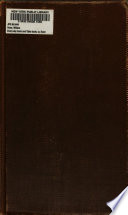 ... People built slighter and slighter every day, until it was feared that the very science of architecture would in no long time be lost to the world. Thus this custom of firing houses continued, till, in process of time, says my manuscript, a sage arose,... ... People built slighter and slighter every day, until it was feared that the very science of architecture would in no long time be lost to the world. Thus this custom of firing houses continued, till, in process of time, says my manuscript, a sage arose,...  Literature and Living - Page 96by Rollo La Verne Lyman, Howard Copeland Hill - 1925Full view Literature and Living - Page 96by Rollo La Verne Lyman, Howard Copeland Hill - 1925Full view - About this book
 | William Hone - 1825 - 842 pages
...process of time, says ray manuscript, a sage arose, like our LocKe, who made a discovery, that the flesh of swine, or indeed of any other animal, might be cooked (burnt, a» they called it,) without the necessity of consuming a whole house to dress h. They first began... | |
 | William Hone - 1826 - 882 pages
...in process of time, says my manuscript, a sage arose, like our Locke, who made a discovery, that the flesh of swine, or indeed of any other animal, might...they called it.) without the necessity of consuming я whole house to dress it, Tbey first began the nide form of я pi id. P in iroc. Roasting by the... | |
 | William Hone - Almanacs, English - 1826 - 892 pages
...in process nf time, says my manuscript, a sa?e aro*r\ like our Locke, who made a discovery, that the flesh of swine, or indeed of any other animal, might be cooked (burnt, u, they called it,) without the necessity of consuming a whole house to dre« it They first began the... | |
 | William Hone - Days - 1830 - 878 pages
...process of time, says my manuscript, a sage arose, like our Locke, who made a 'discovery, that the flesh of swine, or indeed of any other animal, might...necessity. of consuming a whole house to dress it. They first began the rude form of a gridiron. Roasting by the string, or spit, came in a century or... | |
 | 1835 - 430 pages
...in process of time, says my manuscript, a sage arose, like our Locke, who made a discovery, that the flesh of swine, or indeed of any other animal, might be cooked (iumf, as they called it) without the necessity of consuming a whole house to dress it. Then first... | |
 | William Hone - Days - 1835 - 876 pages
...in process of time, says my manuscript, a sage arose, like our Locke, who made a discovery, that the flesh of swine, or indeed of any other animal, might be cooked (tntrnf, as they called it,) without the necessity of consuming a whole house to dress it. They first... | |
 | William Hone - 1837 - 954 pages
...in procer of time, says my manuscript, a saçe arov, like our Locke, who made a, discovery, that the flesh of swine, or indeed of any other animal, might be cooked (bunt, .ч they called it,) without the neces^it) "( consuming a whole house to dress it. They fust... | |
 | Charles Lamb, Thomas Noon Talfourd - 1838 - 486 pages
...in process of time, says my manuscript, a sage arose, like our Locke, who made a discovery, that the flesh of swine, or indeed of any other animal, might...a century or two later, I forget in whose dynasty. ^5y such slow degrees, concludes the manuscript, do the most useful, and seemingly the most obvious... | |
 | Literature - 1838 - 604 pages
[ Sorry, this page's content is restricted ] | |
 | William Hone - 1839 - 874 pages
...like our Locke, who made a discovery, that the flesh of swine, or indeed of any other animal, might te cooked (burnt, as they called it,) without the necessity of consuming a whnle house to dress it. They first began the rude form of a gridiron. Roasting by the string, or spit,... | |
| |